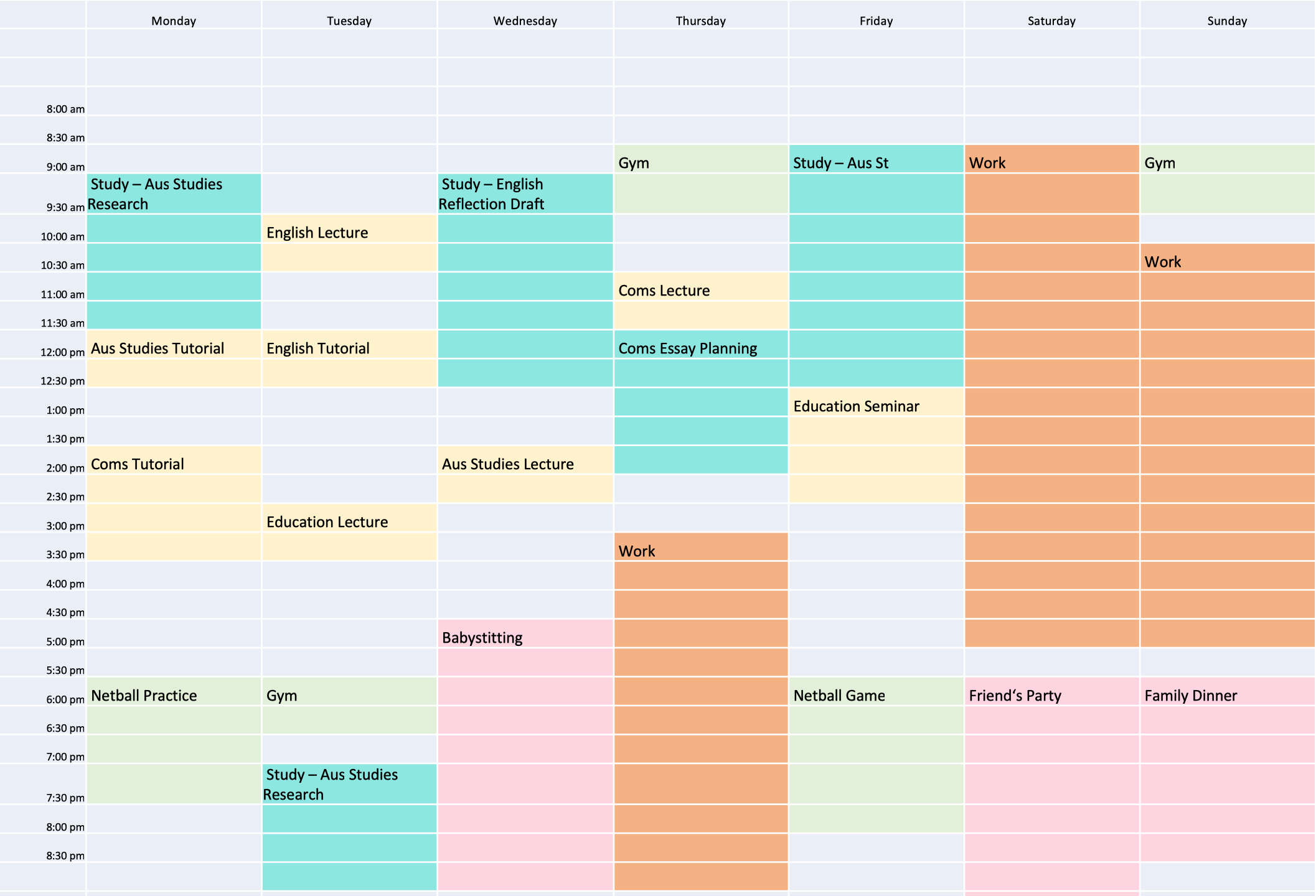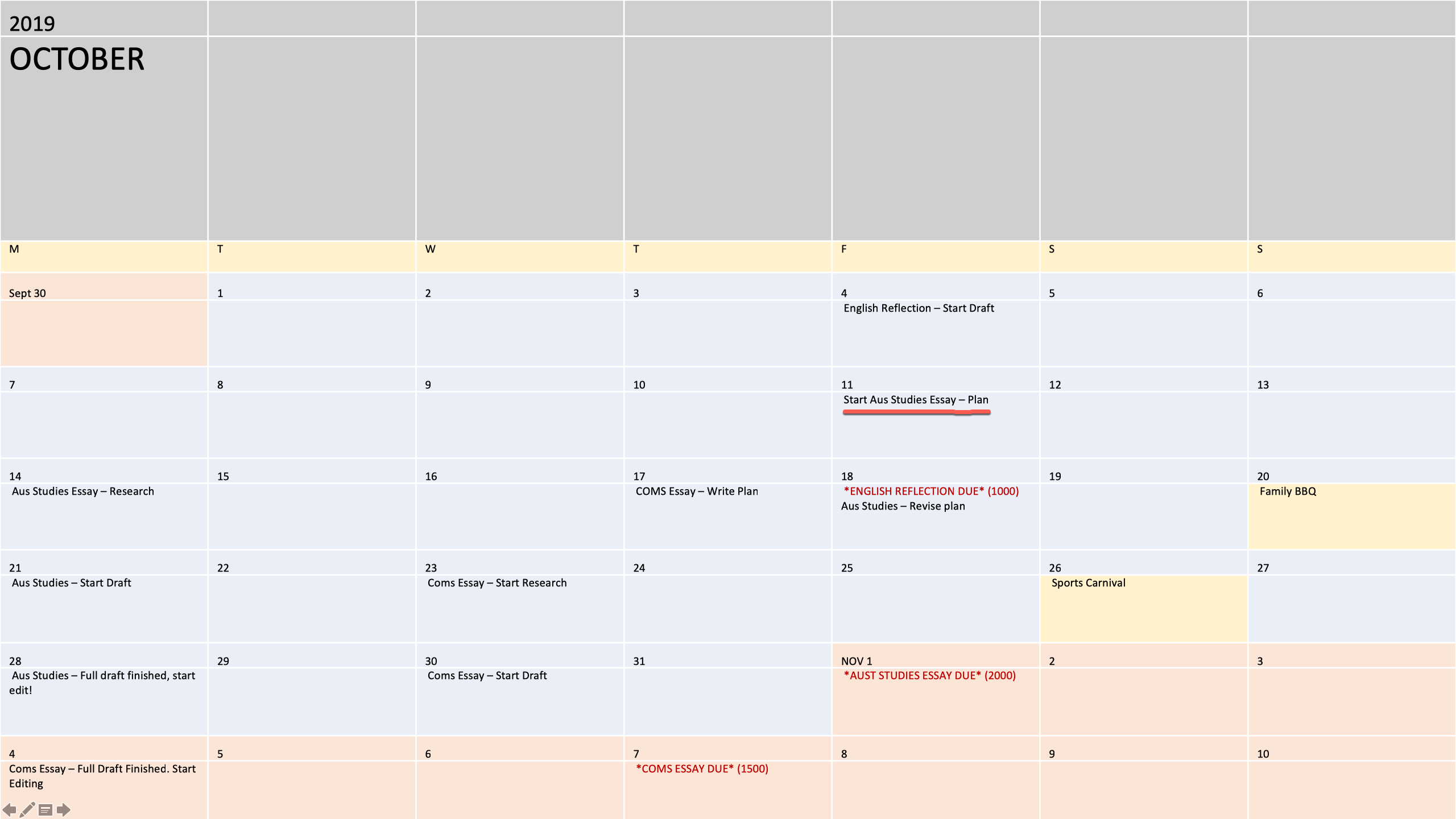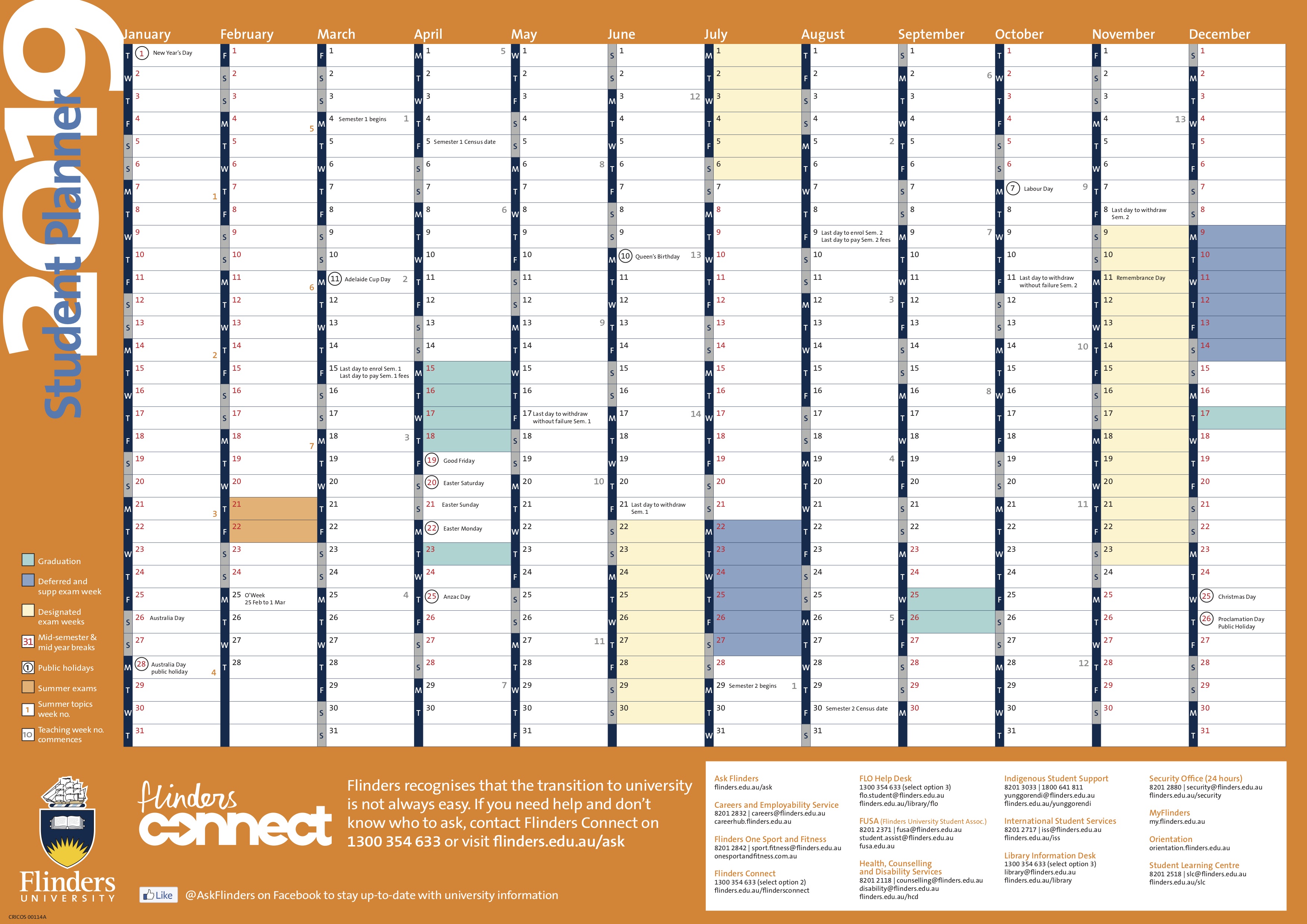
Time management is one of the most important skills you can learn at university, but it’s also the one we struggle with the most. Time management is hard, and it’s something that you have to work at your entire uni career (and beyond!)
Unfortunately, when you get older you don’t just magically get better at time management. It’s something I’ve to retrain myself at constantly, and honestly, I don’t always succeed. I was not great at time management as an undergrad, moderately better as a post-grad, and now that I’m at work, I definitely have good days and bad days. The most important thing I’ve learned is that good time management is a constant work in progress. If you keep checking yourself and aren’t afraid to admit failure and try again, you can always get back on the horse!

One of the reasons that time management can be so difficult is that humans are terrible at estimating the required amount of time for any given task, even if we’ve done the task before . Even if it’s something we do every day.
This means we often underestimate how much time we need to complete a task. You’re likely to think you have more time than you do, that you’ll use time more effectively than you will, and it will take you less time to complete than you have.
It turns out, it’s not necessarily the amount of time we have to complete an assignment that leads to better outcomes, it’s the level of control and management we feel we have over that time. When we are organised and make plans, we feel less overloaded, and so not only does this benefit us by keeping us on track, it has huge impacts on our stress level, and when we don’t feel overwhelmed, we can concentrate much better (Macan, Shahani, Dipboye, & Phillips, 1990).
So how do we do this?
Getting Organised
The recommended amount of study for each topic is 6-8 hours per week outside of classroom time. So, with your contact hours included, it’s approximately 10 hours per week, per topic. That’s a full 40 hour week – yep, the equivalent of a full time job.
Start by getting yourself a planner. Take some time to think about what methods of time management and planning you’ve used in the past. Are you a diary person? A Google calendar junkie? You might like to consider:
- A daily planner
- A weekly planner
- A bullet journal
- A digital planner
Whichever method you use though, I definitely recommend getting yourself a semester planner – you can grab these from FUSA, the library, Flinders Connect and here at Yunggorendi.
Personally, I’d be lost without my Outlook calendar (like literally, I wouldn’t know where I was supposed to be if I didn’t update my outlook) but for a long time I used a weekly diary. It’s important to consider how effective your previous methods have been, as just because you’ve used one method in the past, it doesn’t mean you have to keep using it.
Blocking Time
If you use a calendar, block out all of your time, including your contact hours at uni. Remember to also consider your other commitments, so map out times that you play sport, have family responsibilities, holidays, work, gym, social events.
You’ll notice that your calendar has filled up pretty quickly. This will give you a more realistic idea of how much time you have in the week for study. Be realistic about the time that you have and remember that it’s okay to take time for work and social activities. If you can get a realistic picture of your week, you can fit study time in around these. It’s often a matter of being aware!

Setting Goals
Setting goals is important because it allows us to focus on both the big picture and the details. This might mean making semester goals, weekly goals and daily goals. For example, your semester goal might be to get a distinction for a topic. Your weekly goal might be to finish an assignment. Your daily goal might be to read two articles, or finish writing an essay plan.
Remember that each of your small goals builds towards the big picture goal, and all of these build towards your overall goal of successfully completing uni – right?
So to help with this, get that planner and map out your goals. For example, you may want to begin with all of your due dates. I also very strongly suggest that you include a start date for your assignments.
Consider the length and weight of each assessment that you have, and go back in time accordingly. So, for example, if you have a 2000-word essay, you may want to include a start date 3 weeks before that essay is due.
Be wary of going back too early, because if you start an assignment without sufficient topic knowledge, you may end up doing some unnecessary work.

You can then also include a rough guide to each step along the way. These might include a date to complete the research, a date to complete a plan, to complete a draft, and to edit.
This will help you map your assignment progress. However, don’t be afraid to let this shift by a day or two if necessary. Things change and sometimes things pop up we can’t predict! Don’t be too hard on yourself, but allow this process to keep you accountable.
In the next post, I’ll talk about some things to avoid. Namely, procrastination!
I’ve also got a post with some useful blogs and videos about time management and beating procrastination!
And don’t forget to subscribe!
References
Macan, T. H., Shahani, C., Dipboye, R. L., & Phillips, A. P. (1990). College student’s time management: Correlations with academic performance and stress. Journal of Educational Psychology, 82, 760-768. doi:10.1037/0022-0663.82.4.760


